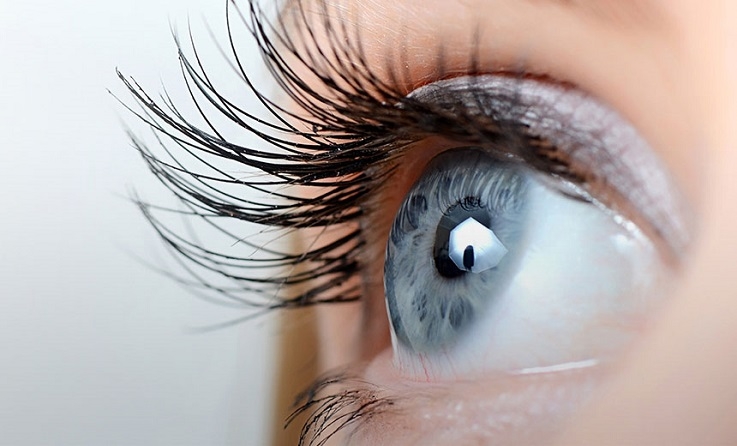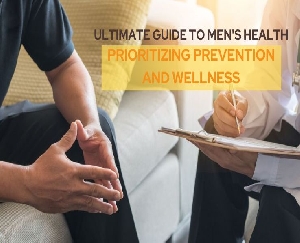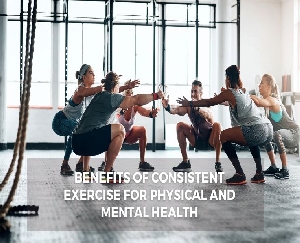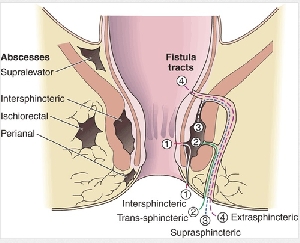
Get Regular Eye Exams: Regular eye exams can detect and prevent vision problems early on. Schedule an eye exam at least once a year or more frequently if recommended by your eye doctor.
Don't Smoke
Smoking poses a significant threat to not only overall health, but also eye health. Research has linked smoking to an increased risk of eye diseases such as cataracts, age-related macular degeneration, and uveitis. This is because the toxic chemicals in cigarette smoke can harm the delicate blood vessels in the eyes, potentially causing vision loss. Smoking also reduces the amount of oxygen reaching the eyes, which is crucial for maintaining good eye health. To safeguard your vision, it's important to quit smoking or never start. Maintaining a healthy lifestyle with a balanced diet, regular exercise, and sufficient sleep can also help keep your eyes healthy. Quitting smoking is a critical step towards protecting both your vision and overall health.
Don't Watch Tv Or Screens For Long Time
Excessive screen time, whether from a TV, computer, phone, or web-streaming platforms such as StreamEast, can have harmful effects on our eyes. These include eye strain, dry eyes, blurred vision, and headaches. To mitigate these effects, it's crucial to take regular breaks from screens and maintain a proper distance between your eyes and the device. Experts suggest taking a break every 20-30 minutes and focusing on something in the distance for 20 seconds. Proper lighting techniques, such as reducing screen glare, can also aid in reducing eye strain. Regular eye exams and wearing corrective lenses if needed can also help maintain good eye health and vision. By being mindful of screen time and taking these preventative measures, we can reduce its impact on our eyesight.
Protect Your Eyes From The Sun
Sun glasses, also known as sunglasses, play a crucial role in protecting our eyes from the harmful effects of the sun's UV rays. The sun's ultraviolet (UV) radiation can cause damage to the eyes, leading to conditions such as cataracts, age-related macular degeneration, and even skin cancer on the eyelids. When choosing sun glasses, it's important to look for lenses that block out 99% to 100% of both UVA and UVB radiation. Darker lenses do not necessarily provide more protection, so it is essential to check the label for UV protection. Wearing sun glasses not only protects our eyes from harmful rays but also enhances visual comfort and clarity, especially in bright light conditions. So, protect your eyes with a good pair of sun glasses when spending time outdoors.
Avoid Rubbing Your Eyes
Rubbing your eyes may seem like a harmless habit, but it can actually lead to a number of eye problems. When you rub your eyes, you are transferring bacteria, dirt, and other potentially harmful particles from your hands to your eyes. This increases the risk of eye infections and can also irritate the delicate skin around the eyes. In addition, rubbing your eyes too much can weaken the eye muscles and contribute to the development of wrinkles. If you have itchy or dry eyes, it's best to use artificial tears or consult your eye doctor for appropriate treatment, rather than relying on rubbing. By avoiding the habit of rubbing your eyes, you can keep them healthy and prevent a range of eye problems.
Stay Hydrated
Staying hydrated is essential for maintaining overall health, and it's no different for the eyes. The eyes are composed of over 70% water, and staying hydrated helps to keep them lubricated and functioning properly. When the body is dehydrated, it can cause dry eyes, which can lead to discomfort, itching, and even vision problems. Drinking enough water throughout the day can help to prevent these issues and keep your eyes healthy. Aim to drink at least 8 glasses of water a day, and more if you are engaging in physical activity or in a hot and dry environment. In addition, incorporating foods with high water content into your diet, such as fruits and vegetables, can also help to keep your body hydrated. Remember, staying hydrated is not only good for your overall health, but also for your eyes.
Practice Frequent Hand Washing
Practicing frequent hand washing is an effective and simple way to prevent the spread of germs and illnesses. It is recommended to wash your hands with soap and warm water for at least 20 seconds, especially after using the bathroom, before eating, and after being in public places. To ensure that you are washing your hands correctly, lather the soap between your palms and fingers and make sure to scrub all surfaces of your hands, including your nails and the back of your hands. Additionally, it is important to avoid touching your face, mouth, and eyes with contaminated hands. By making hand washing a habit, you can help protect yourself and those around you from the spread of illnesses.
Keep A Balanced Diet
Maintaining a healthy lifestyle requires a diet that is balanced and nutritious. To achieve this, it's important to include a variety of foods from all food groups in your diet, including fruits and vegetables, whole grains, lean proteins, and healthy fats. Processed foods, sugary drinks, and excessive salt should be limited. Regular and moderate portion sizes can help you maintain a healthy weight, increase energy levels, and enhance your overall health. It's also essential to stay hydrated by drinking adequate amounts of water. To make informed food choices and stick to a balanced diet, planning ahead, reading nutrition labels, and cooking meals at home can be useful.
Observe The 20-20-20 Rule
The 20-20-20 rule is a simple and effective way to reduce eye strain and maintain good eye health when using digital devices. The rule suggests taking a break every 20 minutes and looking at something 20 feet away for 20 seconds. This helps to reduce eye fatigue, dry eyes, and headaches that can come from prolonged screen time. Additionally, it's important to adjust the brightness, contrast, and text size on your screen to make sure you're not straining your eyes. Taking regular breaks, using artificial tears, and blinking frequently can also help maintain good eye health. Observing the 20-20-20 rule can be especially important for people who spend a lot of time in front of screens, whether it be for work or leisure.
Keep Proper Monitor Distance And Room Lighting
Maintaining proper monitor distance and room lighting is important for both eye comfort and overall health. Keeping the monitor at the correct distance, which is about an arm's length away, can help prevent eye strain, neck and back pain, and headaches. It's also important to adjust the monitor so that the top of the screen is at or slightly below eye level. Room lighting can also have a big impact on eye comfort. Glare from windows or overhead lights can cause eye strain and make it difficult to see the screen clearly. To minimize glare, it's best to position the monitor so that windows are to the side, or use curtains or blinds to reduce the amount of light entering the room. Additionally, it's helpful to use adjustable task lighting to provide additional light where needed.
Use The Right Kind Of Eye Make-Up
Using the right kind of eye makeup can make a big difference in enhancing the appearance of your eyes and making them look their best. There are different types of eye makeup products available, such as eyeliner, mascara, eyeshadow, and eye primer. It's important to choose the right shade and formula that works best for your skin tone and eye color. For example, dark eyeliner can make blue or green eyes pop, while neutral shades of eyeshadow can add subtle definition. Additionally, using a waterproof mascara can prevent smudging and smearing, while a primer can help eye makeup stay in place for longer. Overall, selecting the right kind of eye makeup and using it appropriately can help you achieve your desired look and enhance the natural beauty of your eyes.
Conclusion
Conclusion is the final section of any written work and serves as a summation of the main points and arguments presented in the preceding text. It should provide a clear and concise wrap-up of the content and leave a lasting impression on the reader. A good conclusion should emphasize the significance of the topic and draw attention to the implications of the findings. Additionally, it should offer insights or recommendations for further research or action, where applicable. It's important to note that the conclusion should not introduce new information or arguments, but rather provide closure to the discussion. A well-written conclusion can help solidify the reader's understanding of the subject matter and leave a lasting impact on their understanding of the topic.

Dr. Naveen Chauhan
BAMS, PGCRAV (Ay. Surgery)Founder Director, Shri Dhanwantari Clinic, Ghaziabad












































